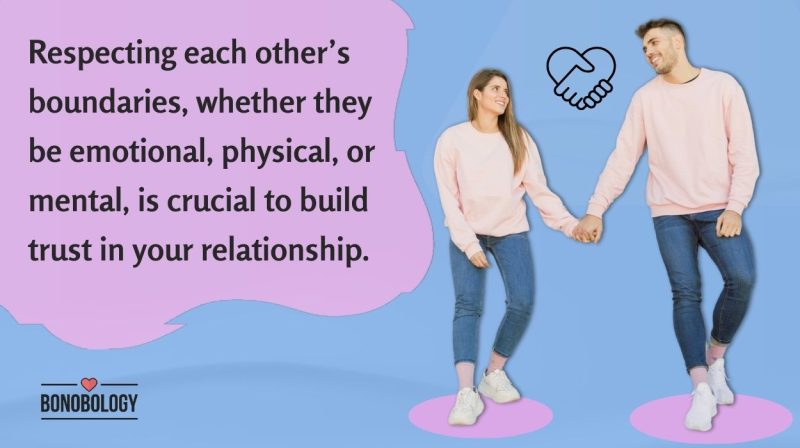Having a verbally abusive wife or husband is something people rarely talk about. Perhaps because, compared to physical violence, verbal and emotional abuse are far more covert and their scars are far less visible. But statistics show they are quite pervasive in relationships. In one study, 48.8% of American men (and 48.4% of women) reported psychological aggression by intimate partners. This included expressive aggression such as name-calling, and coercive control such as isolation tactics or threats of harm.
These often tend to be ‘tolerated,’ downplayed, or brushed off as ‘normal’ behaviors in a conflict. And men are especially reluctant to report them, or even recognize them for what they are. However, the damage they inflict cannot be discounted. So, it is best to spot the signs early and find a fix.
We spoke to counseling psychologist and therapist Neha Anand (MA, Counseling Psychology), founder-director of Bodhi Tree India and chief consultant counselor at the Bhimrao Ambedkar University Health Center, to learn about the signs of a verbally abusive wife and tips for abused men on how to respond and cope.
What Counts As Verbal Abuse?
Table of Contents
According to Neha, verbal abuse is a form of emotional abuse where someone uses their words to:
- Demean
- Control
- Or dominate their partner
“Verbal abuse can be obvious (such as yelling, insulting, name-calling, and belittling) or subtle (like gaslighting, stonewalling, giving the silent treatment, withholding affection, or resorting to other controlling behaviors). Sometimes, it can be wrapped in sly humor. Unlike physical abuse, it doesn’t leave visible bruises or broken bones, but it can be deeply tormenting and torturous just the same,” she says. That’s why it counts as domestic abuse.
And what prompts such behavior? “Abusers often suffer from low self-esteem, which makes them devalue or disrespect their partners to exert power over them. Here, the primary urge is to dictate or dominate others,” she explains.
Related Reading: Emotional Abuse Checklist – 18 Devastating Signs
7 Signs You Have A Verbally Abusive Wife
Verbal or emotional abuse is often so subtle that those at the receiving end feel conflicted about whether or not it rates as domestic abuse. It is also not uncommon for them to wonder if it is ‘bad enough’ or ‘serious enough’ to be called out or addressed. So how can you tell if your wife is verbally or emotionally abusive? For starters, think about how she makes you feel.
Do you feel afraid to share anything with her or walk on eggshells around her? Do you feel overly conscious around her? Or avoid meeting your friends with her? Is it because you dread what she may say to you in private or in front of others? If your answer is ‘yes,’ then it would be advisable to check for these red flags:
For more expert-backed insights, please subscribe to our YouTube Channel.
1. Your wife gaslights you
“When one partner denies facts and mentally overpowers the other by shunning responsibility and distorting the truth, that’s a powerful form of psychological manipulation and manifests in verbal abuse,” Neha observes.
In other words, a verbally abusive wife can twist your reality by simply telling you that something’s not true. Say, you bring up something hurtful that your wife said earlier and she:
- Denies it entirely
- Has you believing that you imagined the whole thing
- Says you’re forgetful/overly fanciful/ weak-minded
Then know that this is a sign of gaslighting. A gaslighting spouse often speaks with such confidence and conviction that their partner ends up believing them and doubting their own version of events.

2. A verbally abusive wife might indulge in name-calling
It’s easy to dismiss name-calling as a harmless, childish pastime rather than a tool of verbal abuse. But words have tremendous power to hurt, and if they chip away at your self-esteem or make you question your self-worth, then no matter how they’ve been said, they point to abuse. Here are some examples:
- “I’ve always been conscious of my body,” says Patrick. “I’m a little overweight and I have trouble losing the extra pounds. It’s terribly hurtful when my wife casually refers to me as ‘chubby hubby’ or says things like, ‘Cut down on the pancakes, fatty.’ She laughs when she says it, but she knows it keeps me feeling low”
- “I earn less than my wife and she’s always calling attention to it,” says Baker. “Every time there’s an argument, she calls me a freeloader or an underling”
“When one partner makes hurtful, triggering statements, either overtly or subtly, and if this becomes a consistent exercise, it makes for a toxic relationship and is a surefire example of verbal abuse,” says Neha.
Related Reading: Fixing A Toxic Relationship: 21 Ways To Heal Together
3. She shames and blames you

“My ex-wife had me believing that she was the victim, not I,” says Grant. “Anything that went wrong – from a scuffed shoe to a bad day at work – she would take it out on me and make me feel it was my fault. It was her way of making me feel small at all times.”
“Verbal abusers tend to blame-shift and put the responsibility for everything that goes wrong in the relationship (or in their lives) on their partner’s shoulders. The motive is to make their partner feel guilty and trap them in a vicious cycle of insecurity and self-dejection,” explains Neha.
It’s difficult to wrap your head around the fact that you’re being emotionally or verbally abused if you’re caught in a vortex of shame. Or if you’re constantly made to feel that everything is your fault. It’s even more difficult to take a stand. That’s the whole point of blaming and shaming. They make it easier for an abusive woman or man to gain complete control over their partner.
4. If you receive threats from her, it is a sign you have a verbally abusive wife
“If you don’t do this, I’m going to leave you!”, “If you leave now, see what I do to your dog”, “Keep acting out like this and I’ll hurt myself/the kids”, “If I walk out on you, you’ll never find anyone else.” Do these lines sound familiar? Does your wife frequently use threats to scare you into submission? Then chances are you have a verbally abusive wife.
Giving threats or ultimatums in a relationship can be a low point, even if it’s done in the heat of the moment. Why? Because there’s always the hint of violence in a threat, even if there’s no physical intimidation. That’s what makes it an insidious way to leave scars on your psyche.
5. She judges and criticizes you a lot
“My wife was forever telling me I didn’t know how to dress, that my sense of humor was poor, that I chose my friends badly,” says Paula. “It came to a point where I started wondering if she liked anything about me at all, or if she just liked having someone to criticize. It was almost like a love-hate relationship.”
Exercising judgment in a relationship is one thing, but being constantly judgmental and critical for no apparent reason is another. Since abusers often suffer from low self-esteem, breaking other people down is how they build themselves up. As for the victims, constant criticism from someone who’s supposed to have their back and support them is a bitter pill to swallow. If you’re living with a verbally abusive wife or husband, chances are you’ve been forced to do that often.
6. Your abusive wife discounts your feelings

“When one partner dismisses the other’s thoughts, feelings, and reality, it’s an indirect way of telling them that whatever they are feeling or thinking is wrong or of no consequence,” says Neha.
Know that your wife is essentially stripping away your right to feel your feelings if she regularly tells you things like:
- “You are being too sensitive/negative”
- “I don’t think this is as serious as you are making it out to be”
- “You’re making too big a deal out of this”
- “Can’t you lighten up and take a joke?”
- “You know you have a habit of exaggerating/blowing things out of proportion”
By using statements like these, she’s also making sure you’re never in a place where you can stand up for what you feel. Abuse in all its forms is ultimately a matter of being the controlling partner in a relationship. Dismissing or discounting a partner’s feelings entirely is how a verbal abuser ensures that they continue to hold the reins in the relationship.
7. She undermines you and your achievements
“When one partner disregards the significance of their partner’s choices, suggestions, or decisions, it creates a toxic space where no matter what you want or achieve, your partner undermines it,” Neha explains.
Undermining can start small. Maybe you try out a new recipe and love how it’s turned out. But she frowns and says, “I really wish you wouldn’t experiment with food.” Or “I guess we’ll just have to order in.” And it can grow from there. Say, you just got promoted at work and you’re stoked. But when you tell her about it, she doesn’t seem all that thrilled. Or she says, “That should have happened two years ago.”
While yelling and name-calling are more direct forms of verbal abuse, this subtle cutting down of a partner no matter what they say or do can be equally damaging. By themselves, the words may not seem that hurtful. However, their underlying message – that you’re not good enough and never will be – clearly is. And it is designed to make you feel less than what you are.
Related Reading: 23 Signs Of Emotional Invalidation In A Relationship
6 Things You Can Do If You Have A Verbally Abusive Wife
Studies have shown that verbal or emotional abuse tends to increase the longer you stay put in the relationship. Like any other form of abuse, it can seriously damage your mental health. “Verbal abuse is emotionally draining and takes a toll. It could lead you to feel hopeless and shatter your self-esteem,” says Neha.
At first, it may be difficult to acknowledge the abuse because it may be mixed in with periods of relative calm and even affection. However, if you think you are experiencing abuse or can spot most of the signs, then trust your gut and think about the next steps. Here are some tips on how to respond to a verbally abusive wife:
1. Build your self-esteem
When the very people we lean on and share our vulnerabilities with decide to break us down, it can be hard to take. It can also take longer to recover from. So what can you do when someone keeps trying to beat you down with their words? Work on building yourself up. Remind yourself constantly that their words are not stronger than who you are.
At the end of the day, your life belongs to you, and the strongest validation of yourself needs to come from within. “Always remind yourself that you have a legitimate right to be treated well and with respect in a relationship. Don’t give up!” says Neha.
2. Be assertive with your abusive wife
So how do you respond to a verbally abusive wife? Here are some tips:
- Stand up for yourself, but don’t fight abuse with abuse
- Sometimes, just taking a quiet stand with confidence and dignity is enough
- “Being assertive is also about refusing to participate in an unproductive argument, which is what a lot of verbal abusers get into,” Neha says
“Be assertive in your actions, stand firm, and state that you are not going to be a part of the relationship conflict. Or, simply do not react when she comes at you,” she adds.
Once you start refusing to give your wife’s verbal attacks any weight, the hold she has on your life will shrink. You’ll also start seeing her for who she is – Someone with low self-esteem, who needs help. And someone who can no longer control you.
3. Speak up and set boundaries

Coping with a verbally abusive wife can be hard. And it can seem harder to talk to her about what you’re going through. But don’t shy away from it. “It’s always fruitful to communicate your feelings to your abuser. Confront them and articulate how it feels when they abuse you,” Neha says.
When she uses her words to hurt or control you, let her know:
- “You are hurting me, and I don’t deserve it”
- “Please don’t talk to me that way, it makes me feel small”
And if the abuse continues, try setting boundaries by saying:
- “I cannot continue this conversation if you continue to call me names”
- “I will not have this conversation till you stop screaming/swearing at me”
Once you’ve laid down boundaries, make sure you stick to them and follow through with the consequences every time they are breached.
Related Reading: 9 Things To Do When Every Conversation Turns Into An Argument
4. Practice self-care to cope with a verbally abusive partner
Self-care and self-love are important regardless of your relationship status. But they are absolutely vital when you’re dealing with an abusive relationship, and even if you’ve decided to leave one. As difficult or pointless as it may seem, put the focus firmly on yourself and the things that bring you joy. Remember, only you have the tools to build a happier you. Start small. Think of one simple activity you can do every day and build from there.
“I love hiking and volunteering at the local pet shelter,” says Ian. “My wife always said that my volunteering made no real difference to the pets, and hiking wasn’t ‘real’ exercise and so it was pointless. Once we separated, I had to focus really hard on getting back to the things that made me happy. But it helped bring me back to my old self.”
5. Seek support
Coping with a verbally abusive wife is not something you need to do all on your own. Know that it is okay to reach out to loved ones for support or guidance. “Do not hide the abuse from your family and friends. Build a strong support system and community that you can turn to,” says Neha. “Call a helpline that deals with abuse if you think you’d rather not seek face-to-face help at the moment,” she adds. Here’s whom you can reach out to:
- National Domestic Violence Hotline (for partner abuse): Call 1-800-799-7233 or 1-800-787-3224, or use the LiveChat
- loveisrespect.org (for youth empowerment): Call 1-866-331-9474, text LOVEIS to 22522, or use the 24/7 chat
- You can even seek help online or from Bonobology’s panel of counselors
When it comes to abuse, the sooner you acknowledge, confront, and address it, the better. This won’t be easy and a lot will depend on your personal situation. If you decide to work on the relationship, you can try individual or couple’s counseling. But do put together a safety plan with someone you trust so you can safely exit the relationship, if needed.
If you decide to end the relationship, seeking legal advice is important. “Most countries have firm laws around physical abuse, but those around verbal or mental abuse tend to be vague. However, continuous and repetitive verbal and emotional violence can be seen as grounds for divorce,” shares Shonee Kapoor, a dowry, divorce, and separation consultant with expertise in misuse of matrimonial laws.
Related Reading: 6 Couples On How Talk Therapy Helped Their Relationship
6. Take a firm decision to move on
“If nothing works, it’s better for you to step away from an abusive relationship,” Neha says. She recommends staying calm as far as possible, not giving in to unfounded fears, and leaning on friends, family, and your community.
Moving on isn’t just about moving out of the house. Coming out into the world and rebuilding your own life will seem like a scary prospect. And continuing with the relationship may even seem preferable to striking out alone. There will be days when you’ll feel trapped by the past and relive the worst episodes of your relationship. There will be times when flashbacks of all the cruel things she said about you will freeze you in your tracks and make it difficult to move forward.
But don’t stop. Take one small step, one day at a time, and get the distance you need to feel safe and to heal. You’ve got this.
Key Pointers
- A verbally abusive wife may use tactics like shaming and blaming, gaslighting, name-calling, or threats to exercise complete control over you
- She may criticize, discount, and undermine you to break your confidence
- While such abuse may not leave visible bruises or broken bones, it can be just as damaging
- To cope with verbal abuse, you will need to confront your wife, be assertive, and set boundaries
- To deal with the effects of abuse, you will need to build your self-esteem and practice self-care
- If need be, do not hesitate to reach out for help or turn your back firmly on the relationship
Dealing with a verbally abusive wife is never easy. Acknowledge that you are in an abusive marriage and then, slowly and calmly decide on how you want to address it. Make sure you have a strong support system to lean on and remind yourself that you’re not alone. Remember, just because your bruises aren’t visible, doesn’t mean they aren’t real. You have every right to heal and form happy relationships.
This article was updated in August 2023.
Healthy Vs Unhealthy Vs Abusive Relationships: What’s The Difference
Verbal Abuse In Relationships: Signs, Effects And How To Cope
Your contribution does not constitute a charitable donation. It will allow Bonobology to continue bringing you new and up-to-date information in our pursuit of helping anyone in the world to learn how to do anything.






















